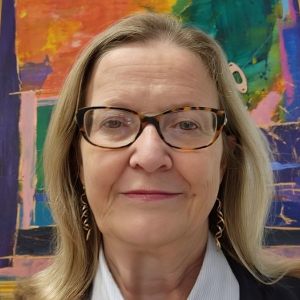- Find a Lawyer
- /
- Canada
- /
- Family Law Mediation
Find Lawyers in Canada for Family Law Mediation
Practice Area Overview
Collaborative law is a newer alternate dispute resolution process available in many Canadian provinces and is particularly useful in family law matters. In this process, each person has their own lawyer who represents only their client. The lawyers have specialized training in collaborative law, interest-based negotiation and/or mediation. The clients and their lawyers agree by written contract to stay out of the court system to resolve their disputes. The couple and their lawyers attend meetings together to discuss their interests, define issues, generate options and determine solutions. Voluntary disclosure, particularly about financial issues that is satisfactory to the clients and their lawyers, is important to its success. Collaborative lawyers are obliged to explain the law to their clients and ensure that they understand their rights and obligations. The meetings, the minutes of the meetings, and the disclosure received cannot be disclosed if the matter proceeds to litigation. When a couple successfully negotiates a resolution, the lawyers prepare and the couple signs a formal written agreement. If the couple agrees, uncontested court matters such as divorce can be dealt with by their collaborative lawyers. If the couple cannot reach an agreement on some or all issues, the lawyers and their firms must withdraw and cannot act for their client in court regarding any matters dealt with in the collaborative process.
Both mediation and the collaborative process require that those involved agree to the process. In both mediation and the collaborative process, the couple has greater control of the cost, the timing, and the result. Mediation and the collaborative process can be less adversarial and can minimize the negative emotional consequences of litigation. The processes are private and confidential and usually take less time on average to reach a conclusion than the court process. Both mediation and collaborative law try to assist the couple to communicate in a more constructive and productive manner. The goal with both processes is to reach a resolution with each person’s participation. This is considered more desirable than a court-imposed resolution and may have greater chance of long-term compliance.
Select a location from the list below to find the best legal talent for your needs.
Province


Michelle Bailey specializes in family law and is a partner at Moe Hannah LLP. In addition to resolving complex property division, Michelle is keen to preserve good will for parents as they move forward in their lives. She also provides mediation services for clients. Michelle’s first degree in Small Business Management provides her with a solid foundation for understanding the nuances and challenges involved when a family has a closely held company in the center of a family law dispute....
Karon Bales is a founding partner of Bales Beall LLP whose experience speaks for itself. Her practice is centred on family law, wills and estate issues. Her experience in trial and appellate advocacy in family law and estate matters is extensive, particularly with those involving partnerships, business corporations and commercial issues. Karon also provides sound guidance with estate administration and planning, domestic and off-shore trusts, and succession planning for owners of family busin...
Traci Bannister is a Family Lawyer and Family Law Mediator and is a partner at the firm Boyes Tiefenbach Bannister Family Law Counsel LLP in Calgary, Alberta. Traci practiced as an Attorney and Family Law Mediator in South Africa for 20 years before moving to Calgary in 2012. Traci requalified as a Barrister/Solicitor in Canada and was called to the Alberta bar in June 2015. Traci is experienced in helping clients reach resolutions of disputes in all areas of family law, such as parenting dis...
Family Lawyer for 30+ years. Mediator for 25+ years. Arbitrator and parenting coordinator for 15+ years. Current Co-Chair of the Alberta Family Lawyers Association; Past President for the Canadian Bar Association (CBA) Alberta Branch; Past National Chair for the Family Law Section of the CBA; Background in psychology and corporate litigation.
Mediation gives people more control over the outcome of their disputes and provides privacy over what are often highly sensitive issues for the parties involved. Many people do not fully realize the lack of control one faces at trial nor do people understand the truly public nature of the courthouse. As a mediator, Diane helps clients overcome legal challenges in a fair and efficient manner. She manages emotions and expectations, and, by engaging in an active risk analysis, she helps to achie...
Todd is a highly skilled litigator and trial lawyer with wide-ranging courtroom experience spanning all levels of Court in British Columbia. Todd settles as many files through agreements or mediation as possible, but in the event of an impasse he litigates the matter to a resolution. Todd’s practice areas include the division of high net-worth assets including complex corporate structures, trusts, foreign property, and pensions. He practices in all manner of parenting and custody litiga...
John-Paul E. Boyd, KC is an accredited family law arbitrator, family law mediator and parenting coordinator. He is the principal of John-Paul Boyd Arbitration Chambers , providing services throughout Alberta and British Columbia, Canada, and counsel to the preeminent Calgary family law firm, Wise Scheible Barkauskas . He is a senior family law lawyer nationally known for his approach to family justice issues, contributions to public and professional legal education on family law, and special ...
Louise Campbell has been a lawyer since 1983. Her practice consists of family and related areas of law. Her approach is to find a resolution which is within the law that represents the concern of all parties, including economic, cultural, religious and health issues. She has been mediating since 1995 and has been Collaborative Family Lawyer since 2000. Because they are required in the resolution of family matters, she is also an excellent legal source for real estate, wills and estates. Areas...
With strong negotiation skills and extraordinary legal acumen, Kenneth is well-known for his ability to find creative, cooperative and beneficial resolutions to complex family law disputes. Whether through mediation, arbitration or litigation, he is sharp-witted, responsive, and empathetic in his approach to achieving his clients’ goals, meeting their needs and exceeding their expectations. Kenneth founded Epstein Cole with Philip Epstein in 1978. As a senior partner, his practice focus...
Wanda has been practicing as a lawyer for more than 20 years and is a returning partner of Kirk Montoute Dawson LLP. A family law practitioner, mediator, arbitrator and parenting coordinator, Wanda Dawson has argued successfully at every level of Court in Alberta. She has extensive training and experience in many methods of litigation and conflict resolution, including collaborative law, lawyer-assisted mediation, arbitration, interest-based negotiation, and parenting coordination. Wanda&rsqu...
A scholar, teacher and leader in the Alberta legal community, Rhoda I. Dobler’s practice spans two and half decades, and includes mediation, arbitration, collaborative law and litigation. Her positive attitude, compassion and creativity guide her conflict resolution approach, making her a valued mediator and arbitrator. An ardent believer in the importance of identifying new talent and mentoring junior lawyers, Rhoda teaches the Bar Admission (CPLED) course annually, and speaks at semin...
I have practiced family law since 1998, and have provided collaborative law services for the past 15 years. I am one of the founding members of Collaborative Practice Manitoba and currently am on its Management Committee as well as serving as the Chair of the Membership Committee. I have taught at the Faculty of Law, University of Manitoba, as a sessional instructor since 2005. I currently teach the Clinical Family Law course and have done so since 2009. I am a frequent presenter at the Law S...
Divorce is one of the most difficult and stressful events anyone can experience. Lindsay’s passion is assisting people through this tumultuous experience in a manner that allows them to remain in control of their solution, minimize the conflict to which they and their children are exposed, preserve their assets and improve communication. Using mediation techniques tailored to client’s particular conflict level and matters in dispute, Lindsay maximizes the prospect for a mutually a...
Stephanie practices exclusively in the area of divorce and family law. She is a Parenting Coordinator, Arbitrator, Family Law Mediator and Collaborative Lawyer. Stephanie is committed to helping her clients transition through divorce in an amicable and non-adversarial way. Stephanie has extensive experience with complicated property and spousal and child support issues, as well as drafting complex marriage and cohabitation agreements. Her approach is child centered and facilitates the wellbei...
Herschel Fogelman Fogelman Law Listed in Best Lawyers since 2006 www.fogelmanlaw.ca Family Law Toronto, Canada hfogelman@fogelmanlaw.ca 416-644-7975 Herschel Fogelman is the founder and principal of Fogelman Law in Toronto. He has been named a Best Family Lawyer in Canada every year since the Best Lawyer rankings began. Herschel is also an experienced and highly sought after mediator and arbitrator, able to deftly navigate and settle complex and sensitive family law matters. Herschel is ranke...
Patricia Fourcand, Ad.E., practices family law at the Montreal office of Fourcand, Tremblay, Kissel, Plante . She has a recognized expertise in family litigation with an international law component. She received the designation of Emeritus Lawyer from the Quebec Bar in 2021. Patricia has worked on complex cases, such as child abductions, the validity of foreign or religious marriages, as well as the multijurisdictional division of assets. Her representations as regards the rights of fathers w...
Experienced in all aspects of family law, Aaron’s clients trust him to recognize the unique complexities of their case and to provide practical solutions that work best for them not only now – but into the future. With extensive legal knowledge and a strategic mindset, he is equally effective at reaching creative, amicable resolutions through negotiation or mediation as he is advocating for his clients in court. As a partner at Epstein Cole, Aaron’s practice encompasses all ...
Kevin has practiced almost exclusively family law for over 25 years. His more recent litigation has been at the appellate level but his practice has shifted to representing a few private clients and acting as mediator (most often with counsel present) and arbitrator (often of longer, more complicated arbitrations). His articles/papers on family law issues have been published by the Lawyer's Weekly and he is a regular contributor to the continuing legal education of Alberta's family bar throug...
Ms. Caroline Harnois is a member of the Family Law, Personal Law and Estate Law team. Her practice is focused on all aspects of family and estate law, which comprises private international family law, including international child abduction. Prior to joining the firm, Ms. Harnois worked as a lawyer with the Children, Person and Family Law team at The Hague Conference on Private International Law in the Netherlands, where she developed an expertise in extraterritorial conflicts and the applica...
Stacey has practiced exclusively in the area of family law since her call to the Bar in 2014, and between 2010 and 2014 she worked and/or volunteered with Family Justice Services (now Resolution Services) at the Calgary Courts Centre as a judicial clerk/intake worker assisting individuals with Family Law matters. Stacey believes that clients are best served through the use of alternative dispute resolution processes such as mediation and arbitration, and as such will encourage people to consi...
Life events that involve our families are often the most difficult to meet. Since 1998 Kim Johnson has helped people struggling with the deconstruction and reconstruction of their concept of “family” due to separation, divorce, custody disputes, and estate matters. Whether the problem is a straightforward Will or Agreement, or a complex contested divorce involving business assets, pensions, or high conflict people, her goal in every case is to find timely and practical answers to ...
Dereck is a senior family law lawyer, having practiced exclusively in this area since being called to the Alberta Bar in 1995. Dereck holds a B.A. (Hons.) from McGill University followed by his L..L.B. from the University of Alberta. As a skilled litigator, he has appeared successfully at all levels of court in Alberta as well as in numerous arbitrations. Dereck also has extensive experience in negotiating settlements and drafting agreements. He applies a reasoned approach to his files and en...
Principal Lawyer and Mediator with Kelly D. Jordan Family Law Firm in Toronto, Ontario. Practises in the areas of family and fertility law, wills and estates. Certified as a Specialist in Family Law by the LSUC. Particular expertise in family law issues pertaining to the gay and lesbian community and assisted human reproduction. Fellow of the American Academy of Assisted Reproductive Technology Attorneys. Co-counsel on Baker v. Francis (1999) and Miglin v. Miglin (2002) before the Supreme Cou...
George is a partner with Thomson Rogers and his practice is devoted to litigation with an emphasis on matrimonial litigation and matters involving commercial disputes. George has co-authored a number of articles for use in continuing legal education seminars and is a regular contributor speaker at continuing legal education seminars having spoken at seminars conducted by the Law Society of Ontario, the National Judicial Institute, Osgoode Professional Development and the Advocates’ Soci...
Jeff is the Managing Partner of the firm, and practises primarily in the fields of family law and commercial litigation. He has appeared as counsel in family law cases before the British Columbia Court of Appeal, the Provincial and Supreme Courts of British Columbia, and numerous arbitration hearings. His family practice primarily focuses on complex asset division, trusts & maintenance issues as well as the drafting of asset protection agreements. Jeff represents JTI-Macdonald Inc. and R....
Gary has been practicing as a lawyer for more than 20 years and is the managing partner of Kirk Montoute Dawson LLP. Gary also has extensive training as a Mediator and has participated in numerous Mediation, Arbitration and Judicial Dispute Resolution hearings. In addition to the practice areas of Wills and Estates, Mediation and Family Law, Gary is also an experienced litigator. He has appeared before all levels of Court in Alberta. Currently, Gary’s practice is focused primarily on Es...
Renée has practiced family law exclusively since 2001. She is passionate about helping her clients find resolutions to their parenting or financial issues based on mutual respect and understanding. She is a partner at Moe Hannah LLP. Renée is a private Mediator and acts as a Dispute Resolution Officer (mediator) in the Court of Queen’s Bench of Alberta. Renée also volunteers her time with law students who are completing their bar admission through the Canadian Centr...
Partner Admitted to the Bar, 1984, Manitoba; 1992, Ontario. Education University of Saskatchewan. University of Alberta (B.A., 1979; LL.B., 1982). Mediation, Arbitration and Collaborative Law training. Recognitions Appointed Queen's Counsel (2019). Canadian Bar Association Cecilia I. Johnstone Outstanding Service Award (2015). Lexpert Zenith Award: Celebrating Women Leaders in the Legal Profession (2013). MBA Isabel Ross (MacLean) Hunt Award (2013). University of Alberta Alumni Honour Award (...
CURRICULUM VITAE 1977 - Present Partner in law firm, Lutz Longstaff Parish, specializing in criminal and family law. A. Committees, Associations, Appointments and Elected Positions. 1990 - 1991 President - Law Society of New Brunswick. 1992 - 1996 Vice-Chair, Canadian Council of Criminal Defence Lawyers. 1996 - 2008 Treasurer, Canadian Council of Criminal Defence Lawyers. 1994 - Present New Brunswick Criminal Lawyers Association, Treasurer. 1986 - 1991 Federation of Law Societies National Cri...
With a focus on settlement and the best interests of the family, Alex helps his clients minimize conflict and avoid costly prolonged court battles. He is known for his bright and practical approach and for helping clients reach solutions that ultimately allow them to move forward with their lives. Alex has extensive training and experience in interest-based negotiation, mediation and arbitration. He offers creative solutions for clients in a way that best fits their needs whether that be thro...
Aaron Martens, KC is a family law practitioner, mediator, arbitrator and Registered Collaborative Family Lawyer. He joined Dunphy Best Blocksom LLP in 1998 and is a partner in the firm. Aaron’s experience in family law matters includes being counsel on a wide variety of family and special chambers applications. He has represented clients in trials at Provincial Court and the King's Counsel, and has made appearances at the Court of Appeal of Alberta. Aaron also does adoption work. Aaron ...
Concentrating on family litigation, negotiation, and mediation services, Paul McInnis serves the Toronto community as a Partner at McInnis & Nicoll. Mr. McInnis has been practicing law since he was called to the Bar of Ontario in 1979. Outside of his duties as partner at his firm, Paul McInnis is an avid supporter of continuing legal education (CLE). He has been a presenter at a number of different CLE events, predominantly speaking on his concentration of family law. Paul McInnis has spo...
Daniel is a partner in our Family Law Group. Certified by the Law Society of Upper Canada as a Family Law Specialist, he is also fully qualified as a family law mediator and arbitrator. As a mediator and arbitrator, Daniel has assisted clients and family law lawyers to resolve matters in a sensible, efficient and private manner. In family law matters of property, spousal and child support, Daniel has been involved in the determination of income, the valuation of multinational, privately held ...
Doug is a senior family lawyer who has practiced family law for over 36 years. His practice is largely mediation and arbitration of family law disputes. Often Doug is acting as a mediator/arbitrator in a hybrid process that combines the benefit of both mediation and arbitration. In addition, Doug assists a few select clients in reaching resolution through negotiation, collaborative law, mediation, arbitration, and when necessary through litigation. Admitted to the Alberta Bar on January 10, 1...
Brad practices as a Mediator, Arbitrator and Collaborative lawyer. He is a partner with the family law firm of Moe Hannah LLP in Calgary, Alberta. His practice assists clients in negotiating out-of-court settlements, mediation, collaborative law, arbitration, and litigation. Brad teaches Negotiation as a sessional at the University of Calgary’s Faculty of Law. He was an invited panelist for LESA on Advanced Matrimonial Property issues and Mediation. Brad completed his LLB at the Univers...
Craig is an Associate Counsel in the Family Law Group at Watson Goepel and is widely recognized in British Columbia as a leading certified Parenting Coordinator and Family Law Mediator. For over 35 years, Craig has advocated for families in all areas of family law. Craig’s long-standing recognition in Family Law and Family Mediation exemplifies his commitment to assisting families during challenging times. His nuanced approach to dispute resolution helps our clients navigate family matt...
Judith M. Nicoll is a partner in the firm of McInnis & Nicoll. She was called to the Bar of Ontario in 1984 and practises exclusively in the area of family law. Judith also conducts mediations and arbitrations in family law matters. She has chaired and participated in programs for Osgoode Professional Development, the Law Society of Ontario, the Advocates’ Society, the Canadian Bar Association-Ontario, the American Bar Association and the International Bar Association, including wri...
Krysta Ostwald earned her B.A. in 1993 and her LL.B. in 1996, both from the University of Victoria. She articled with Fraser Milner and was called to the Alberta Bar in 1997. Since then she has practiced exclusively in the area of family law. Krysta worked with the firms of Laurie Allen & Associates, Turnbull Boyes and Soby Boyden Lenz, before creating Widdowson Kachur Ostwald Menzies LLP with her partners. Krysta emphasizes resolving disputes without unnecessary conflict. She utilizes ma...
Élisabeth Pinard is the partner who coordinates the firm's Family law, personal law, and estate law group. She acts primarily as litigator in complex divorce cases as well as in private international law, inheritance disputes, and elder law. She is also a certified mediator. Ms. Pinard also acts as counsel to accounting and valuation firms on the legal impact of marital breakdown in matters of succession, business transfers, protective trusts, and the valuation of private corporations....
Suzanne H. Pringle is a seasoned litigator with over 38 years of experience pleading before courts of all jurisdictions, including the Superior Court, the Court of Appeal and the Supreme Court of Canada. After having practiced banking and insolvency law within a renowned firm in Montreal for the first 5 years of her career as an attorney, Suzanne founded her own firm in 1988. Since then, she focuses her practice solely on family law matters. Suzanne’s firm has built its reputation in th...
As a renowned litigator, Avra has extensive trial and appellate experience at the highest levels of the Ontario Courts including the Superior Court of Justice and the Court of Appeal. Avra lectures frequently on family law topics for the Law Society of Upper Canada and the Ontario Bar Association, and is the author of numerous family law articles. As a mediator and arbitrator, Avra provides spouses and their counsel with firm, fair outcomes for all parties involved. Avra has intimate understa...
Gordon Sterchi, KC articled with Dunphy Best Blocksom LLP in 2001 and became a partner in 2010. He practices in the area of family law as both a litigator and a mediator, as well as counsel for landowners in surface rights matters in Alberta. Gord is currently a member of the Calgary Flames Ambassadors and serves on their Board of Directors. He is also on the executive of the Calgary Bar Association and serves as the Vice President. He previously served on the Board of Directors with The Dist...
As a fierce advocate for her clients, Roslyn navigates complex legal matters with ease, not only in the courtroom, but also during negotiation, mediation, arbitration, and collaborative family law. She is an attentive listener who can effectively bridge the gap between what a client initially wants and what they will eventually need to preserve their family’s wealth and goodwill. With the aim of keeping resolution at the forefront, she masterfully analyzes all facets of a situation to d...
Sandy Vander Ziel joined Dunphy Best Blocksom LLP in 2013 and practices exclusively in family law. She is a registered collaborative lawyer, mediator and arbitrator, as well as a dispute resolution officer with the Court of King’s Bench. She has practiced in the area of family law at local and national law firms since 2002. Sandy has significant experience with a variety of methods of Alternate Dispute Resolution including Collaborative law, lawyer assisted mediation, arbitration and in...
As an experienced family law practitioner, Angela understands the importance of providing a supportive space for clients going through difficult family transitions. This is obvious in her ability to quickly build rapport with clients and her dedication to enabling and encouraging transformations as her clients work toward resolution. Her passion for people and providing dynamic and customized solutions are what enable Angela to strive to make the seemingly impossible, possible. Angela’s...
Jennifer practices in all areas of family law including complex divisions of property, income disputes, child and spousal support, and high conflict custody and access matters, through both the litigation and alternative dispute resolution processes. Prior to focusing exclusively on family law, Jennifer practiced commercial litigation at a prominent full-service law firm. A trusted advisor and ardent advocate, Jennifer’s integrity and solution-oriented approach allows her to effectively...
Oren Weinberg of Boulby Weinberg LLP is a seasoned family law lawyer with over 18 years of experience. He has a deep understanding of all family law matters, including negotiating agreements, representing clients in court, and facilitating amicable resolutions. Oren specializes in child and spousal support, property division, custody, and parenting time issues. Oren is a qualified mediator and arbitrator with extensive training in dispute resolution. He has received certification from the Fam...
A senior member of the Family Law bar and a senior partner in our Family Law Group, Lorne’s practice includes all aspects of family law, including divorce, custody and access, property, support, and domestic contracts. He conducts litigation before every level of court in Ontario, as well as providing mediation and arbitration services. He also acts as counsel to lawyers and accountants addressing family law concerns that arise in business, wills and estates, and personal financial plan...
Jordon invites clients to contact him if they want assistance on almost any aspect of family law. Jordon can provide advice with respect to division of matrimonial property, unjust enrichment claims, spousal or partner support, child support, parenting, guardianship and custody, mobility applications, and cohabitation, prenuptial, marriage, or separation agreements. He can assist with all the research, drafting, paperwork, court appearances, and attendance at mediation or arbitration that tho...
Our Methodology
Recognition by Best Lawyers is based entirely on peer review. Our methodology is designed to capture, as accurately as possible, the consensus opinion of leading lawyers about the professional abilities of their colleagues within the same geographical area and legal practice area.
The Process
Best Lawyers employs a sophisticated, conscientious, rational, and transparent survey process designed to elicit meaningful and substantive evaluations of the quality of legal services. Our belief has always been that the quality of a peer review survey is directly related to the quality of the voters.



















































